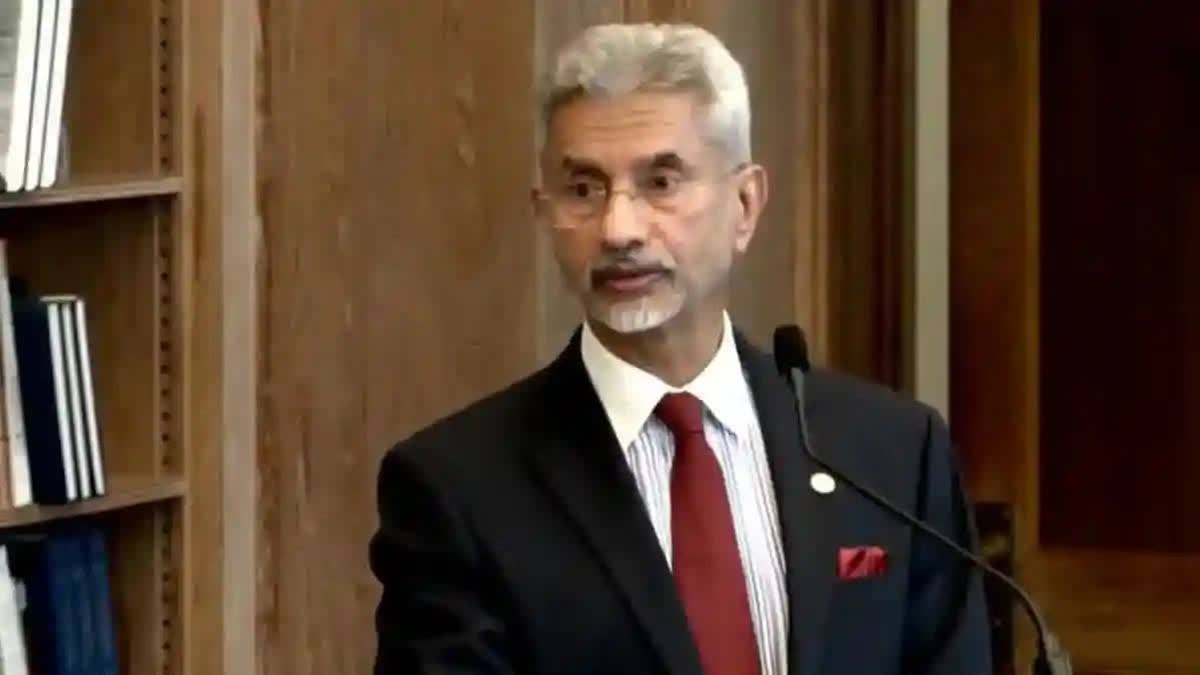New Delhi: External Affairs Minister S Jaishankar on Thursday slammed China stating that it is a cause for concern if a country doesn’t observe written agreements with its neighbours and also raises a question on the country’s intentions. Addressing the Raisina Roundtable organised by the Observer Research Foundation (ORF) in Tokyo on Thursday, Jaishankar said, “…Our own experience, in the case of China, for example, is between 1975 and 2020, there was no blood-shed on the border. In 2020, it changed. We can disagree on many things but when a country does not observe written agreements with a neighbour then I think you have a cause for concern here because it raises a question mark about the stability of the relationship and frankly, about intentions…."
He noted that a big power shift in the Indo-Pacific is a reality and when that happens there are all the accompanying political and strategic consequences of those developments. There is the reality of very big power shifts in the Indo-Pacific. When there are big shifts in capabilities, influence and presumably ambitions, then there are all the accompanying political and strategic consequences of that….,” he added.
He said that although countries intend to keep relationships stable despite changing dynamics that has not been the case with China. Pointing out that the Indian economy is increasingly engaging with the external world, he emphasised the rise in trade levels, exports and Foreign Direct Investments (FDIs).
He further highlighted that it is important that Japan today appreciates the pace of change in India. "This is a country today, which is building 28 km of highway every day, which is creating eight new airports every year, which is establishing 1.5 to 2 metros every year, which has for the last 10 years built two new colleges every day, and which has doubled its technical and medical institutions and output. This transformation of India makes us a more effective and credible partner", added Jaishankar.
'Whether it is the Ease of Doing Business, infrastructure development, ease of living, digital delivery, a startup and innovation culture, or shaping the international agenda, India is a very different country today. This is important for Japanese to recognise", he said. He reiterated that the world is now more volatile, uncertain, unpredictable and open-ended. This is the prospect that India and Japan have to confront, both from their national perspectives as well as from the point of view of their relationship. "Can we safeguard stability, security, freedom, progress and prosperity for ourselves, for the larger region and indeed, for the world?", Jaishankar said.
On the Russia-Ukraine conflict, Jaishankar said that the fact that Russia’s ties with the Western world have broken down, presents an opportunity for Asian countries, including India, as Moscow is looking for “multiple options.” “What happens in life is that things are not going the way you expect to or the way it is calculated. If you look at the last two years, because of the Ukraine conflict, the Russia-Western relationship has broken down. Economically, it means a lot of access it had to the Western world is not there…you have the prospect of Russia turning more and more to Asia. We are already seeing a flow of Russian trade, investments and resources and collaborations towards Asian destinations….it has very interesting implications for us in Asia, because like other big powers, Russia will want to have multiple options,” he further added. Jaishankar is on a visit to Japan from March 6-8 for the 16th India-Japan Foreign Minister’s Strategic Dialogue with his Japanese counterpart, Yoko Kamikawa.
Read more: 'Non-West View Of Russia-Ukraine War': China Mouthpiece Endorses EAM Jaishankar’s Remark



